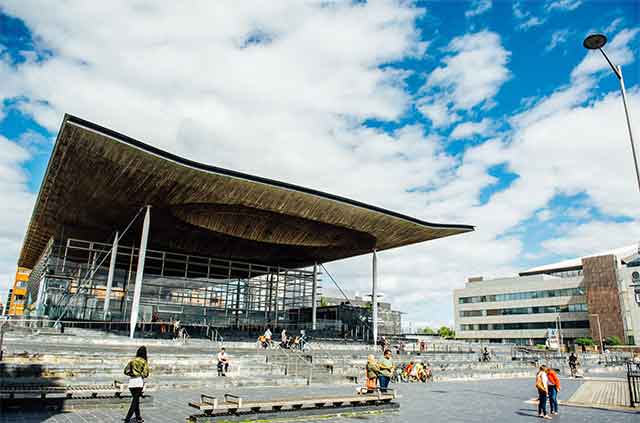MSs scrutinised representatives of the Arts Council of Wales about funding cuts which put the future of National Theatre Wales at risk.
Delyth Jewell, who chairs the Senedd’s culture committee, asked about the Arts Council’s investment review after National Theatre Wales warned it may be forced to close.
Dafydd Rhys, chief executive, said the Arts Council of Wales is happy with the range of the review, saying 81 companies are being supported compared to 67 previously.
Mr Rhys told the committee that more organisations from diverse backgrounds have been awarded funding as part of the review, which he described as an open and honest process.
He said: “We also recognise that there is more work to be done to ensure diversity…. There are areas which haven’t been reflected as strongly in the investment review as we’d like.”
Mr Rhys said the Arts Council has been forced to make difficult decisions, with bids for £54m of funding and £30m set to be allocated.
Review
Mr Rhys said funding has increased across the board apart from in theatre: “Although when you include venues in that mix that is also higher but it is opera that may have missed out.”
Pressed by Alun Davies, a Labour backbencher, he told committee members that the Arts Council is reviewing English-language theatre.
He said: “As we went through the process, it became apparent to us that in making a decision not to fund National Theatre Wales we needed to look at the implications of that.”
Mr Rhys added that the Arts Council is reaching out to communities in Caerphilly, Torfaen and Blaenau Gwent after a lack of geographical spread in applications for funding.
Tom Giffard, the Conservatives’ shadow culture minister, raised concerns about funding to National Theatre Wales being cut before the planned review.
‘Opaque’
Maggie Russell, chair of the Arts Council, said a meeting will take place on December 13 to consider the recommendations of an appeals panel on National Theatre Wales.
She told MSs it would be inappropriate to comment because it would risk prejudicing the integrity of the council’s decision-making process.
She stressed: “I’m not trying to be opaque in any way.”
Ms Russell, who has been in post for nine months, told the committee that an investment review had not been completed for seven years.
She said: “I’d have been really surprised if we’d begun the investment review, which has been such an in-depth process – monitoring so many across Wales and across art forms – if that hadn’t thrown up quite a lot of areas and questions.”
She told the committee that almost 50% of Arts Council spending had not been interrogated in a detailed, strategic way for a long time.
Hefin David, the Labour MS for Caerphilly, said: “There’s clearly a gap here in terms of what we need to know and what you’re able to tell us.”
Ms Russell replied that she expects the appeals panel to report back imminently and a decision will be announced within seven days of next Wednesday’s meeting.
‘Clear gaps’
Plaid Cymru’s Llyr Gruffydd accused the Arts Council of putting the cart in front of the horse by making strategic decisions with long-term implications before reviewing the sector.
Mr Rhys said the review was prompted by clear gaps that emerged.
Ms Russell told the meeting on Wednesday December 6 that theatre has been one of the slowest sectors to recover from the pandemic.
Questioned about cuts to opera, Mr Rhys said the Arts Council is in discussions with the Welsh National Opera (WNO).
He told MSs: “There are changes, no doubt – but we have to make sure we have a national opera company that has quality at its core and I think that’s true in the case of WNO.”
Mr Giffard asked whether national companies should be directly funded by the Welsh Government rather than through the Arts Council.
Ms Russell said there may be merit to the model but stressing that it’s above her pay grade.
She added: “I’m very envious when I look across to some of our European counterparts which have funding levels for the arts that none of us in the UK have.”

